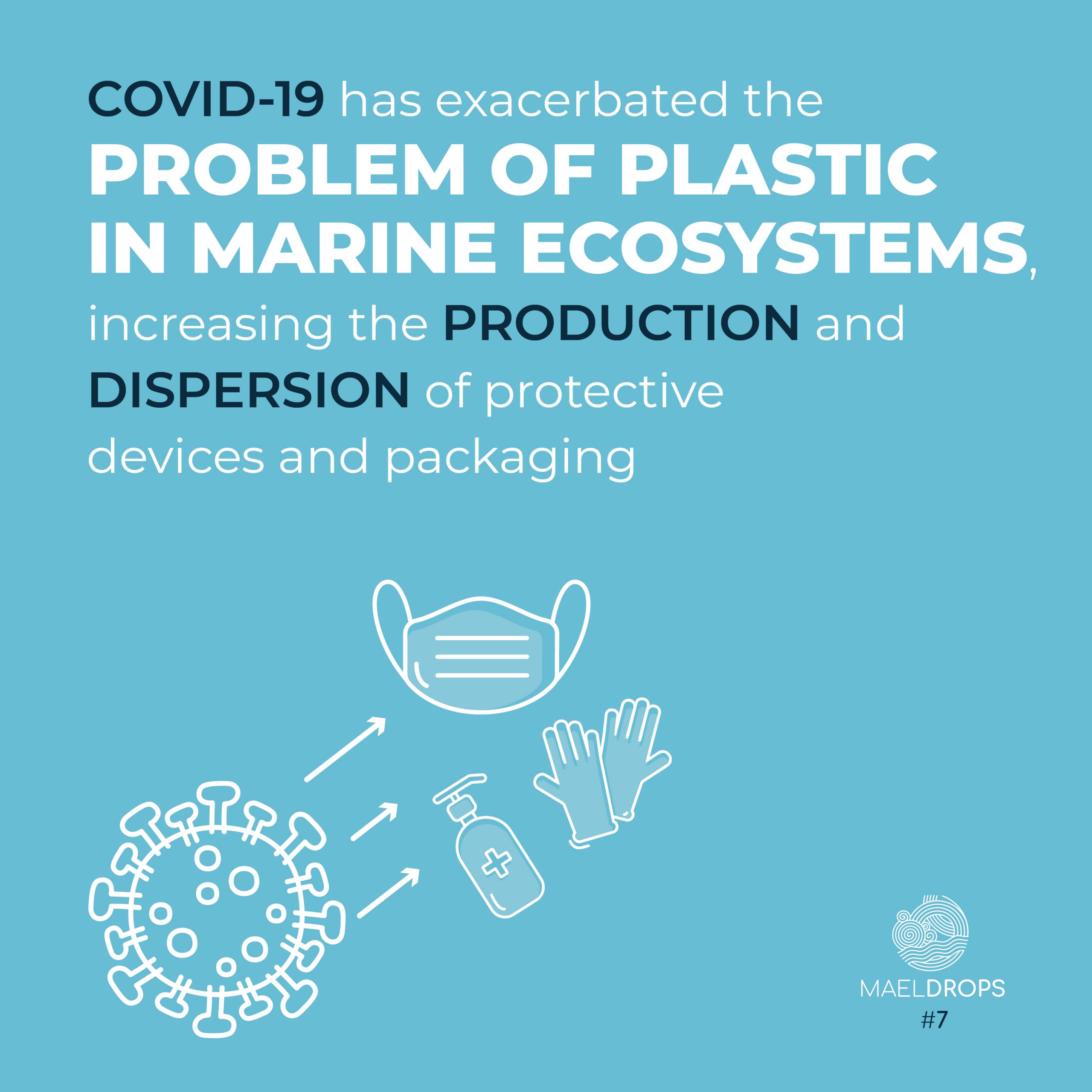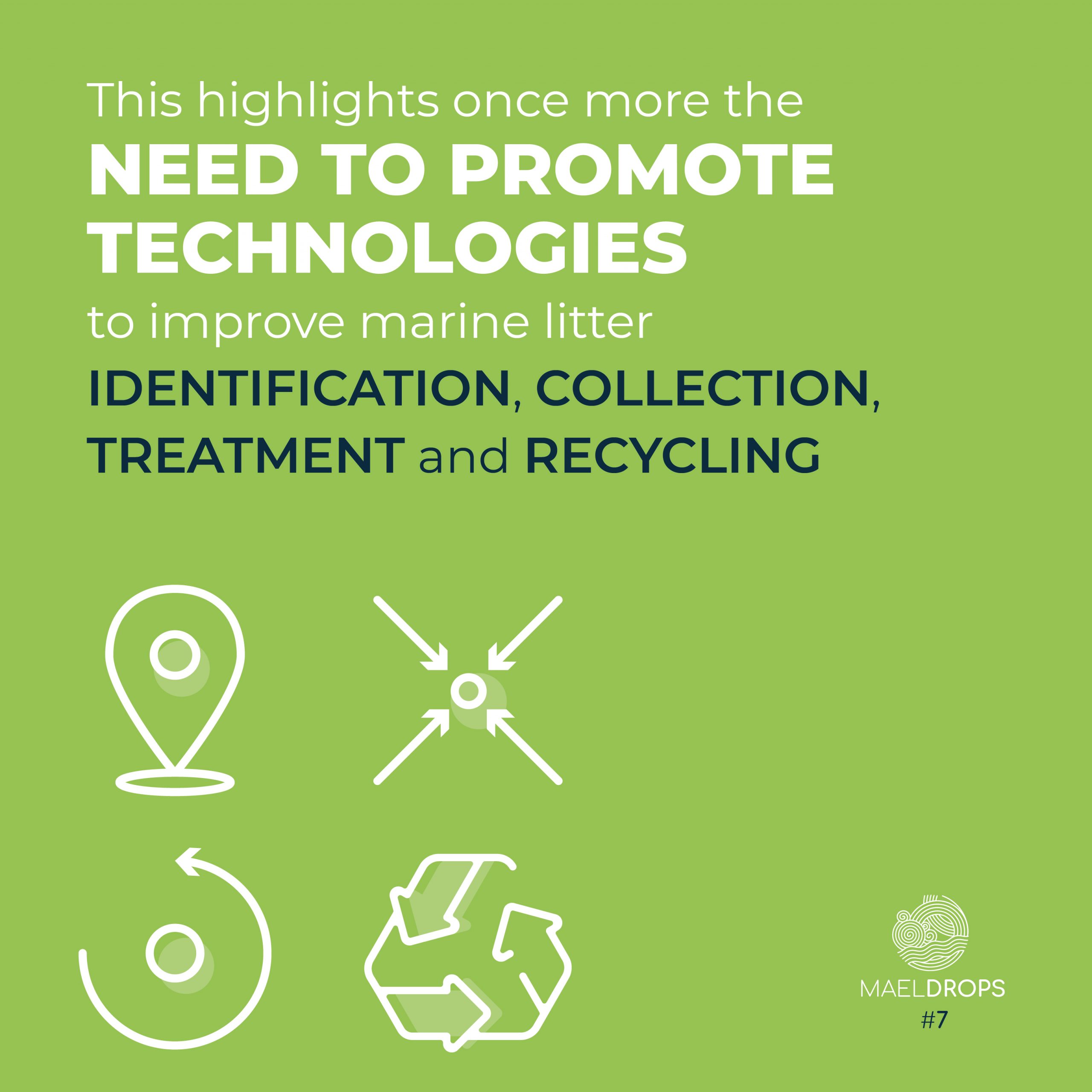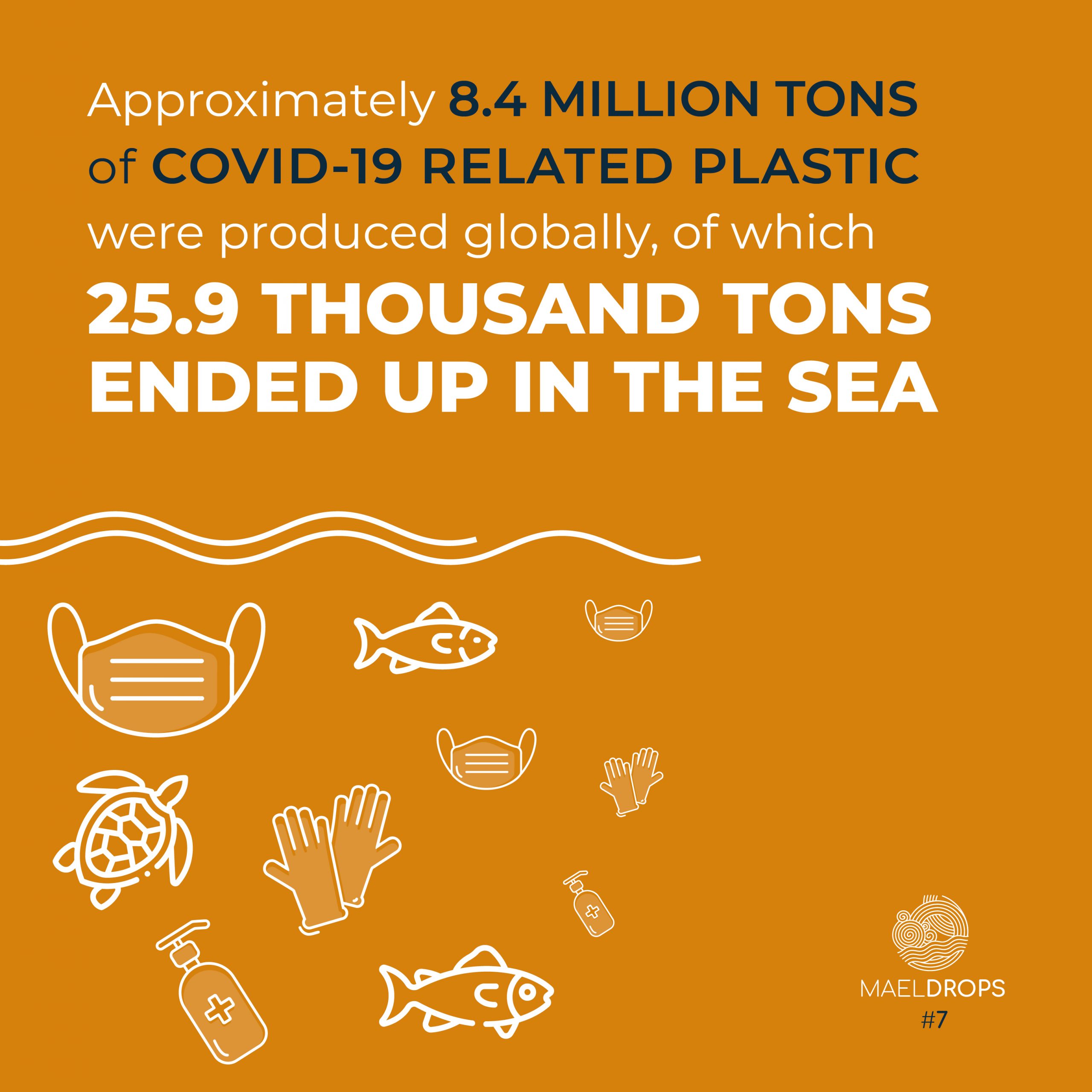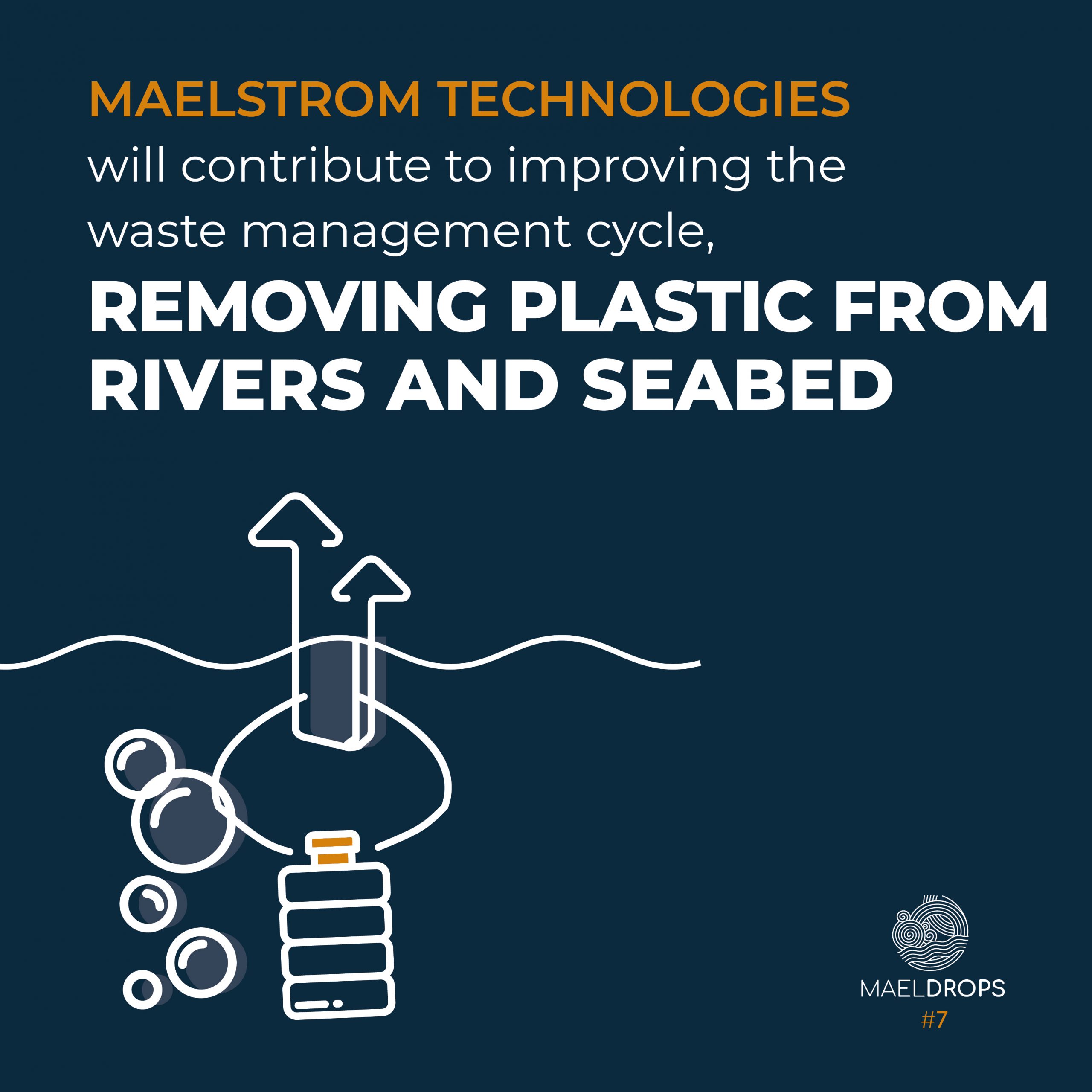MAELDrop #7 | How the COVID-19 pandemics increases plastic generation and dispersion
The COVID-19 pandemic has highlighted the importance of plastics, as most protective and medical devices are, at least partially, made of it. At the same time, however, it has exacerbated the problem of plastic pollution due to the increased production and dispersion of protective devices, single-use plastics and plastic packaging in natural ecosystems. Moreover, the need for personal protective equipment has in some cases led to the delay or withdraw of national legislations against single-use plastic.
The relationship between COVID-19 and plastic generation and dispersal was already intuited at the beginning of the pandemic. Scientists are now beginning to quantify it: according to a recent paper, as of August 2021, COVID-19 had led to the production of approximately 8.4 million tons of plastic globally; 25.9 thousand tons of which ended up in the sea. The research has also identified a dozen rivers that transported 79% of the COVID-19-generated plastic into the oceans.
These and future data are of foremost importance as they indicate critical points on which to act and to focus global efforts. In general, however, the authors conclude by reiterating the need already expressed by many experts: technologies to improve the collection, treatment and #recycling of plastic are urgently needed.
This is exactly our goal at MAELSTROM! The innovative technologies being developed by our consortium will contribute to improve the plastic management cycle by identifying and removing it from rivers and the seabed. Moreover, the recently launched MAELSTROM app will help operators to track the entire process, from litter identification up to its recycling outcomes. Environmental assessments and monitoring activities happening at the same time alongside the project will enable the identification of accumulation hotspots and will assess the impact of MAELSTROM technologies.



